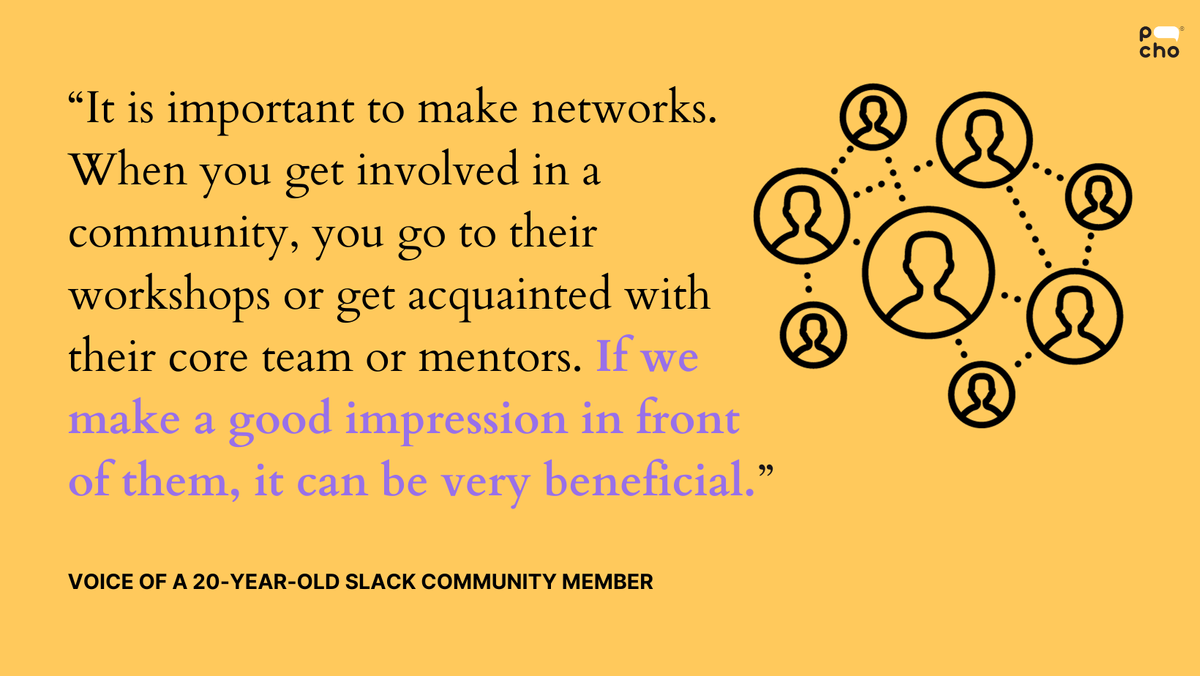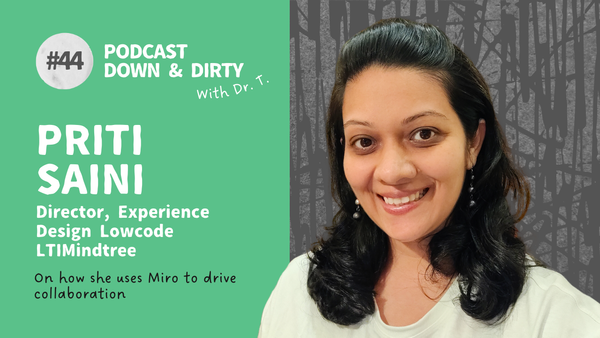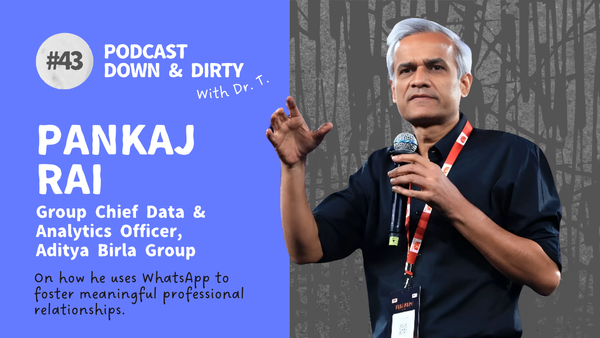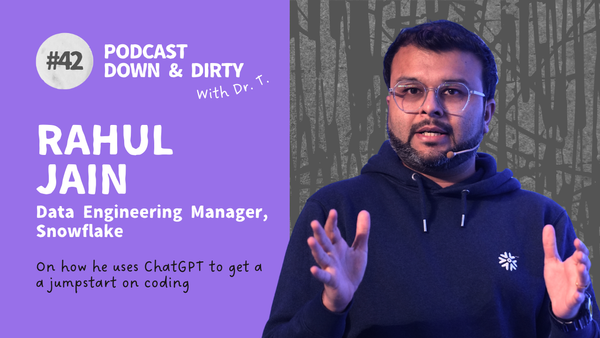💬How does Slack help this professional “belong” to a vibrant digital community?
Aarav Bhat, a 3rd-year engineering student, discusses his experiences on Slack, which he uses to learn about new softwares and connect with potential mentors.

Written by: Ananya Mavinkurve
Currently studying at IIIT Vadodara, Aarav Bhat* specialises in Artificial Intelligence and Machine Learning, and his work is primarily focused on vector space engines such as Marqo and Qdrant. He uses Slack to reach out to like-minded students and professionals in the field which enables him to resolve queries, explore job opportunities, and find mentors.
- 20 years old
- Living with a roommate
- Currently pursuing an Engineering degree, specialising in vector space engines
A new-age learning tool
Although Aarav receives support and guidance on various projects from his professors, he is a major proponent of self-studying using digital education tools such as Coursera and YouTube tutorials which he says help him to maintain focus and engage more deeply with his work. While working independently online, he stumbled across a number of relevant and helpful communities on Slack, where he met like-minded engineers, developers, and students with whom he now regularly interacts in a professional capacity.
Slack, a cloud-based digital messaging app that enables communication through public channels, private messages, as well as video and voice calls, has made a name for itself in the field of collaborative softwares, with almost 150,000 companies using it for their internal communications. Today, India is Slack’s fourth largest market, and several Indian professionals and companies are welcoming it into their workflows with open arms.
A common use case for Slack outside of inter-organisational communication is for learning and resolving project-related doubts. A large number of public channels are dedicated to specific softwares or projects. Novices can ask doubts and collaboratively learn with experts through these channels.
According to Aarav, “They [a Slack community he has joined] have active communities, as in, you can come and ask any doubts about the project… Every channel has a sub-channel for beginners or people who are just getting started. If I'm just starting with my project and I'm facing some issue, I generally post that query, and the people who are involved in that channel reply because these issues are quite easy for them.”
This way, he gets almost-immediate feedback and suggestions from the team behind that very software, or other professionals who are extremely well-versed in it. This comes in handy especially when answers cannot be found elsewhere, such as on Google or in the software’s documentation. This, in turn, facilitates learning and professional growth both for the person asking the question and the person answering it, and also fosters the development of cordial professional relationships online.
Networking and mentorship in a post-Covid world
Beyond getting queries answered and seeking help for projects, professionals and students alike are also turning to Slack for professional development post-pandemic. Slack has proven to be a useful tool for networking, peer interactions and finding virtual mentors, which helps them advance their careers significantly.
Aarav, for one, finds Slack to be quite beneficial as it puts you in direct contact with experts who have been closely involved with a field for upwards of a decade. He has connected with very knowledgeable moderators who guide members through anything that they may require assistance with, creating a warm and welcoming atmosphere and enabling them to achieve success in their various endeavours.
Aarav met his mentor through the ‘Google Summer of Code’ Slack channel, and regularly approaches him for advice on initiating projects, asks him technical questions, and reaches out for any help that he may need. He also uses Slack to scout for potential job opportunities, and wholeheartedly believes that being an active member of these communities is a great way to advance one’s career. On the importance of staying active in digital communities via Slack, Aarav says: “It is important to make networks. When you get involved in a community, you go to their workshops or get acquainted with their core team or mentors. If we make a good impression in front of them, it can be very beneficial. Suppose they have a job opening, or need help on a project; they would ask us because they know about us. They regularly post important stuff about organisations and workshops, so it is quite helpful.”
Fostering collaboration and connection
Slack transcends geographical boundaries and brings professionals together in a digital space conducive to collaboration and growth. It also provides a sense of community and belonging, creating spaces where individuals can discuss industry trends, share successes, and seek support. This sense of camaraderie fosters trust, collaboration, and a spirit of collaboration within an entirely virtual ecosystem.
As large parts of the working world become increasingly receptive to remote work and demand higher flexibility, virtual networking is the order of the day, and Slack seems like the ideal place for newbies and experts alike to dip their toes in and explore some exciting professional communities.
*We anonymize participant names to protect their identities and encourage more honest dialogue.



